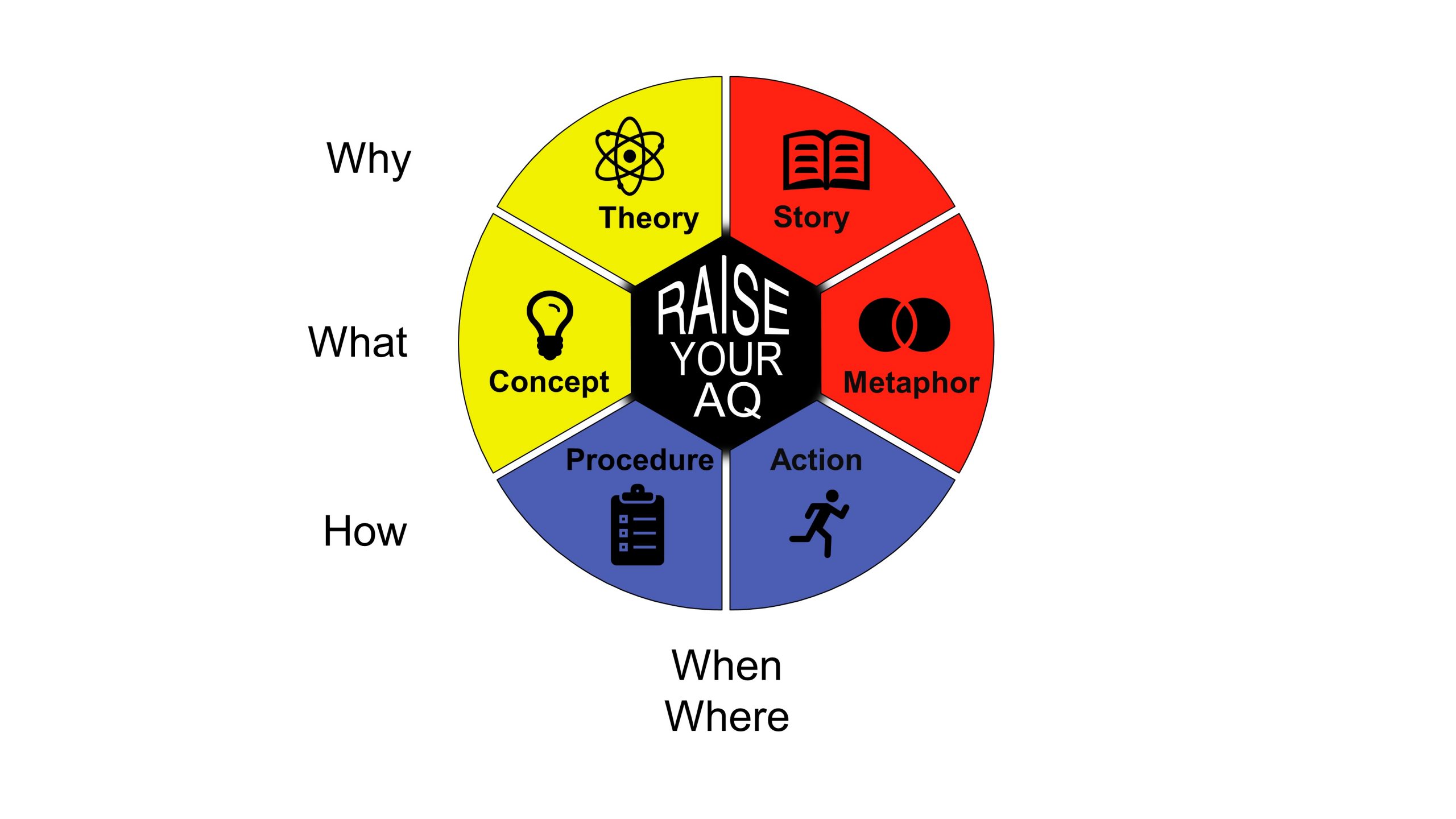Article by Brian Glibkowski, PhD
 If you are building a house, you open your toolbox and use the hammer, saw, or other tools to get the job done. Which tools are in your conversation toolbox?
If you are building a house, you open your toolbox and use the hammer, saw, or other tools to get the job done. Which tools are in your conversation toolbox?
Building a house is about putting a roof over your head. The goal of a conversation is about transferring knowledge from one party to other. Going back to the Shannon-Weaver model from 1948, communication starts with a sender, who typically asks a question, and a receiver, who provides an answer. The communication toolbox consists of questions and answers.
Fortunately, we have long known about the question-tools. They go by open and closed and the 6-WH questions (what, why, who, when, where, how). You learned about question-tools in grade school and you have been using them all your life. You use questions to prepare for your next job interview and to navigate a sales call with a client.
In contrast, if I told you to grab the answer-tools for your next conversation, you would likely look at me with a blank stare. You are never taught a typology of answers, in grade school or at any age. In other words, there is no framework to organize answers. For the first time, I have developed a typology of six answer types (story, metaphor, theory, concept, procedure, action) that are tools you can utilize in your next conversation. I refer to this framework as Answer Intelligence (AQ)™. AQ is the ability to provide elevated answers to important questions.

Consider your next important conversation in sales, with your team, or even at home with the kids. You will be asked why, what, and how questions. With AQ you can identify the best answers.
What-questions are answered with Concept and Metaphor
If you are asked “What is your #1 skill?” on a job interview, you can provide a concept and/or metaphor. For example, you can discuss leadership as your #1 soft skill and define leadership as holding people accountable and inspiring others. Then you could provide a metaphor that leadership is like a braided rope. Two strands are strong individually but made stronger when they are braided together. That is your leadership approach. In every meeting you lead with inspiration and accountability.
For your important conversations, try it yourself. “What is ____________?” Be able to define the concept and provide a metaphor.
Why-questions are answered with Theory and Story
In sales you are asked the explicit (or implicit) question, “Why should I hire you?” This question can be answered with a theory (often called a strategy in the business context). A theory is a cause-and-effect statement. For example, the theory of your sales organization might be:
Involvement → Satisfaction
In other words, your sales team involves the clients in decisions, and this is key to increased client satisfaction. Each sales organization chooses its own value proposition. Instead of Involvement, you may focus on a different type of value, such as reliability, innovation, and/or adaptability.
It is important to clearly articulate your theory (or business strategy) within your sales team, so everyone is on the same page. Also, share your sales theory with the client to gauge fit.
Additionally, a story of involvement can be shared. For example, I was once told a story about a 3rd party cleaning service that cleaned office buildings. They exercised more involvement with their clients, getting to know them in simple ways such as learning the names of late working employees during after-hours cleaning.
They also got involved in big ways. On one occasion, a cleaning person volunteered to look for a lost wedding ring in the bathroom. After over an hour, it was found. Client satisfaction was high, and where other cleaning services were often put out to bid (in an endless race to find rock bottom prices), this high-involvement cleaning service was viewed as a valued partner and often spared the re-bid process with their clients.
For your important conversations, try it yourself. “Why ____________?” Be able to articulate theory and story answers.
How-questions are answered with Procedure and Action
Procedure and action are like baking a cake. When we emphasize the steps in a recipe, that is the procedure. When we refer to any given step, such as cracking an egg, that is an action.
As a team leader you are asked “How should we get the project done? How questions are answered with procedure and action. As a rule of thumb, a basic procedure answer involves 3 steps (beginning, middle, end). Of course, for more complex work, the procedure can involve many more steps and be complicated by feedback loops and decision nodes.
A how-question can also be answered with an action. There are two basic types of action: best practice and unique. For example, a best practice action when working on a client project is to ask the client at the beginning of a call how they would like to structure the agenda (this reinforces the theme of involvement discussed prior). It is a best practice, presuming this is a well-known expectation. Additionally, you can share less known, or unique actions. For example, during a presentation to a client, when you are using PowerPoint, you can press “Ctrl + B” in presentation mode and the PowerPoint screen will turn black. This is done to give the floor to an executive that is speaking (again, this reinforces the involvement concept discussed prior).
For your important conversations, try it yourself. “How ____________?” Be able to provide procedure and action answers.
Use All 5 High AQ Practices and read the book
The preceding examples are consistent with Provide Six Answers (High AQ Practice 1). By studying expert communicators, I have identified 5 High AQ practices that distinguish elevated answers, heights each of us can achieve with awareness and practice.
About the author
Dr Brian Glibkowski is an Associate Professor of Management at North Central College, CEO of Semplar Science Corp and author of Answer Intelligence: Raise your AQ. Find out more: www.RaiseYourAQ.com
If you are a job seeker or someone looking to boost their career, then WeAreTheCity has thousands of free career-related articles. From interview tips, CV advice to training and working from home, you can find all our career advice articles here.





